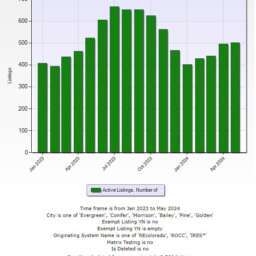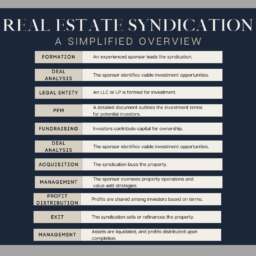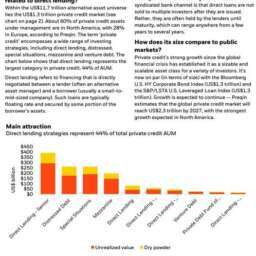This is the actual letter statement sent out to all Colorado real estate agents
Director’s Corner
Commission Settlements and Colorado Licensees
The Division has received a lot of inquiries about the proposed settlement
agreement between the National Association of Realtors (“NAR”) and plaintiffs
Rhonda Burnett, Jerod Breit, Jeremy Keel, Hollee Ellis, Francis Harvey, Christopher
Moehrl, Michael Cole, Steve Darnell, Jack Ramey, Daniel Umpa, Jane Ruh, Don
Gibson, Lauren Criss, and John Meiners, and the impacts that the proposed agreement
will have on broker compensation in Colorado. If you have not read the proposed
agreement or are unfamiliar with the proposed terms, you can review a copy here.
As an initial matter, it is important to note that the settlement terms are only
applicable to members of NAR and the Realtor MLSs. Colorado has approximately
51,000 licensed real estate brokers, but not all of our brokers are Realtors. To put it
simply, the proposed settlement agreement is not binding on the Colorado Real Estate
Commission, the Division of Real Estate, or Colorado’s licensed real estate brokers
who are not Realtors. Furthermore, the terms of the proposed agreement do not
necessitate any changes to real estate broker licensing law or Commission rules and
regulations.
Although the proposed settlement is only binding on those brokers who are
members of NAR and the Realtor MLSs, it may still have some impact on the way real
estate is practiced in Colorado. In order to understand this potential impact, it is
helpful to review the requirements set by state law and regulations.
Colorado law offers two types of brokerage relationships in which a broker may
perform licensed duties on someone else’s behalf: single agency, which requires that
a broker enter into a contract with a consumer to perform their licensed duties, and
transaction brokerage. Pursuant to Commission Rule 6.14.C, Brokers representing a
seller or landlord as a transaction broker are required to have a written agreement
with a consumer to perform their licensed duties. In contrast, a broker representing a
buyer as a transaction broker is not required to have a written agreement to perform
licensed duties. Despite not being required to do so, brokers who represent buyers as
transaction brokers may want to consider requiring a written agreement (i.e. an
Exclusive Right to Buy Contract) when working with a buyer to ensure that the buyer
understands who will be responsible for compensating the broker for the licensed
duties that are performed. Brokers working with buyers need to have a candid
discussion with the buyer about who is ultimately responsible for paying for the
buyer’s broker’s services (i.e. if the seller is unwilling to pay a cooperating
commission, either the buyer will be paying the commission or the broker will not be
compensated). The Commission-approved listing contracts address broker
compensation and are therefore a useful tool to document the agreement made
regarding compensation. Brokers should be aware that, with the current Commission-
approved Exclusive Right to Buy Listing Contract, if a broker checks the wrong box
under compensation and a cooperating commission is not offered, the broker will
effectively be working for no compensation.
One of the terms of the proposed settlement requires that Realtor MLS
participants enter into a written agreement with a buyer before the buyer tours any
homes. However, Colorado law does not require that a brokerage relationship be
established before a broker can show property to a buyer (this is assuming that the
broker will not be eliciting confidential information). Colorado law also does not
require that a compensation agreement be in place before a broker shows a buyer
property.
In general, real estate brokers can anticipate some changes regarding the
practice of providing cooperating commissions. Colorado law does not require the
seller, or the seller’s broker, to offer a cooperating commission to compensate the
broker representing the buyer, but it also does not prohibit it. Section 12-10-410,
C.R.S.-Compensation states the following:
(1) In any real estate transaction, the broker’s compensation may be paid by
the seller, the buyer, the landlord, the tenant, a third party, or by the sharing
or splitting of a commission or compensation between brokers.
(2) Payment of compensation shall not be construed to establish an agency
relationship between the broker and the party who paid the compensation.
(3) A seller or landlord may agree that a transaction-broker or single agent may
share the commission or other compensation paid by the seller or landlord with
another broker.
(4) A buyer or tenant may agree that a single agent or transaction-broker may
share the commission or other compensation paid by the buyer or tenant with
another broker.
(5) A buyer’s or tenant’s agent shall obtain the written approval of the buyer or
tenant before the agent may propose to the seller’s or landlord’s agent that
the buyer’s or tenant’s agent be compensated by sharing compensation paid by
the seller or landlord.
(6) Prior to entering into a brokerage or listing agreement or a contract to buy,
sell, or lease, the identity of those parties, persons, or entities paying
compensation or commissions to any broker shall be disclosed to the parties to
the transaction.
(7) A broker may be compensated by more than one party for services in a
transaction if those parties have consented in writing to such multiple
payments prior to entering into a contract to buy, sell, or lease.
Despite it being common practice prior to the proposed settlement, a
broker representing a buyer should not assume that the seller, or the seller’s
broker, will automatically be paying a cooperating commission to the buyer’s
broker. The Division anticipates that the payment of a cooperating commission
will become a regular point of negotiation between the buyer and seller in a sales
transaction. Any language inserted into the sales contract that addresses the
payment of broker commissions must be at the direction of either the seller or the
buyer, otherwise the broker inserting the language is likely in violation of
Commission Rule 7.4.
Lastly, it is a violation of the Brokerage Relationship Act for a broker to
prioritize the payment of a commission over the fulfillment of the broker’s duties
to their client. Refusing to show a property to a client or submit an offer on the
client’s behalf because the broker is uncertain whether a cooperating commission
will be paid, or the broker disagrees with the amount of cooperating commission
offered, is unacceptable under Colorado law and may be grounds for license
discipline.
1560 Broadway, Suite 925 Denver, CO 80202-5111 | P 303.894.2166 | F 303.894.2683 | https://dre.colorado.gov/
It's Nice to Share
























































































Comment, Write a Blog Post, Create Groups, Get Seen!
Comments, Opinions and Facts Go Here...👇